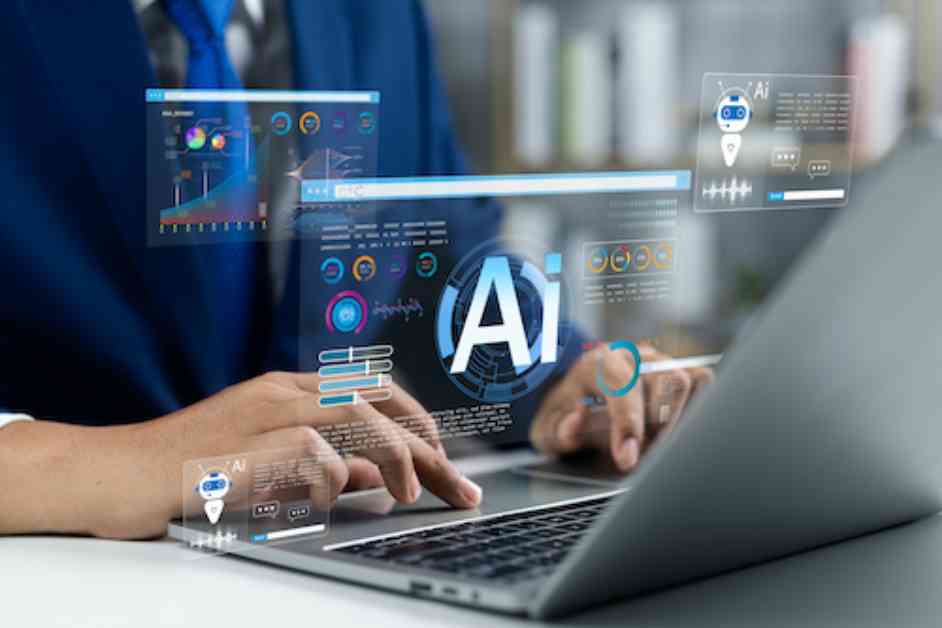AI in Special Education: Revolutionizing Teaching with Artificial Intelligence
Artificial intelligence (AI) has become a game-changer in the field of special education, offering innovative solutions to streamline processes and enhance learning outcomes for students with individualized needs. With the increasing demand for special education services and the ongoing shortage of qualified teachers in this area, AI presents a promising opportunity to alleviate the workload and pressure on special education staff, ultimately improving the quality of education for students with diverse learning needs.
Reducing Workload and Pressure on Special Education Staff
One of the key benefits of integrating AI into special education is its ability to reduce the administrative burden on teachers, allowing them to focus more on personalized instruction and support for students. Special education teachers often face high levels of paperwork and documentation requirements, leading to burnout and job dissatisfaction. By leveraging generative AI tools, such as IEP generators and behavior intervention plan (BIP) generators, teachers can streamline the process of developing individualized education plans and behavior support strategies, saving time and effort in the paperwork process.
Enhancing Learning Through AI and Human Educators
While AI plays a crucial role in streamlining administrative tasks and paperwork, it also complements the work of human educators in enhancing the overall learning experience for students. AI tools like text leveling programs and meeting agenda bots can assist teachers in creating tailored instructional materials and facilitating productive meetings with multidisciplinary teams. By leveraging AI resources, special education teachers can provide differentiated instruction, develop personalized learning goals, and track student progress more effectively, ultimately improving outcomes for students with diverse learning needs.
5 Critical Priorities for AI in Education
As AI continues to reshape the landscape of special education, there are five critical priorities that educators and policymakers should consider when integrating AI into educational practices:
1. Enhancing IEP Development: AI tools can help streamline the process of developing individualized education plans, setting SMART goals, and tracking student progress more efficiently.
2. Supporting Differentiated Instruction: AI resources can provide teachers with strategies to create reading level-appropriate materials, accommodate diverse learning needs, and modify curriculum content to meet students’ individual requirements.
3. Facilitating Meeting Planning: AI bots can assist in drafting personalized meeting agendas, taking meeting notes, and summarizing key discussion points to streamline the planning process for special education meetings.
4. Improving Data Tracking and Progress Monitoring: AI technologies can help educators collect and analyze data on student performance, track progress towards learning goals, and identify areas for improvement in instructional practices.
5. Enhancing Collaboration and Support: AI tools offer opportunities for special education teachers to collaborate with colleagues, access on-demand support, and engage in professional development activities to enhance their teaching practices.
By prioritizing these key areas, educators can leverage the power of AI to enhance teaching practices, improve student outcomes, and support the overall well-being of special education staff.
For more news on AI in education and digital learning resources, visit eSN’s Digital Learning hub to stay informed on the latest trends and innovations in special education technology. As AI continues to revolutionize the field of special education, it is essential for educators to embrace these technological advancements and leverage AI tools to support student learning and enhance the overall educational experience for students with diverse learning needs.
In conclusion, AI has the potential to transform special education by streamlining administrative tasks, enhancing instructional practices, and improving student outcomes. By integrating AI tools into educational practices and prioritizing key areas for AI implementation, educators can harness the power of technology to support the unique needs of students with disabilities and create a more inclusive and equitable learning environment for all. As the field of special education continues to evolve, AI will play a vital role in shaping the future of education and empowering educators to meet the diverse needs of students with individualized learning requirements.


